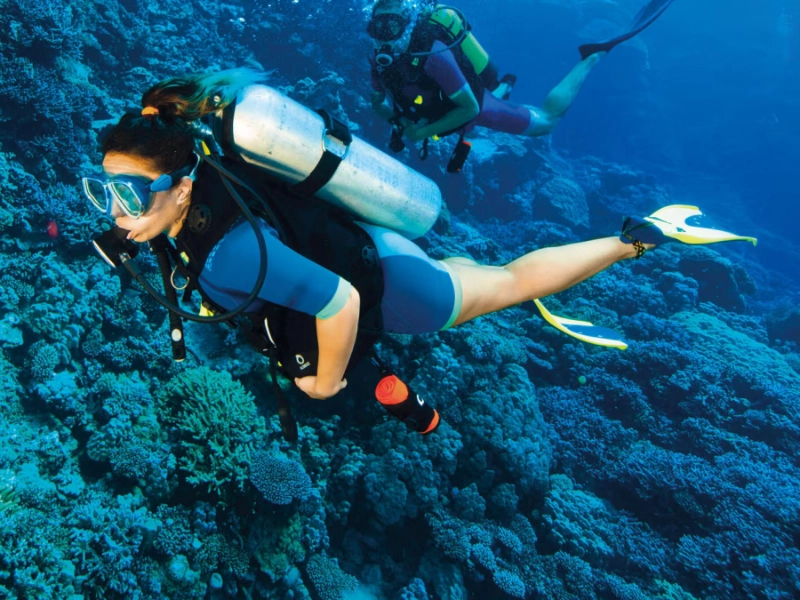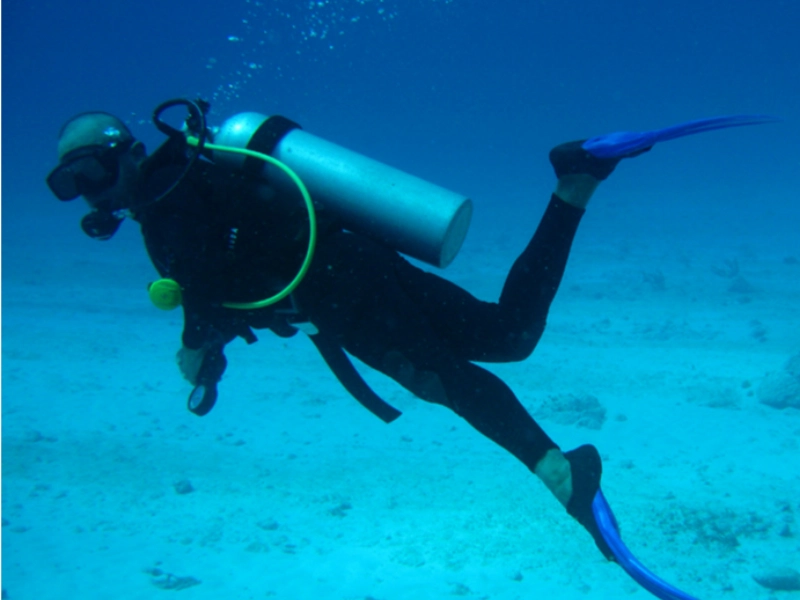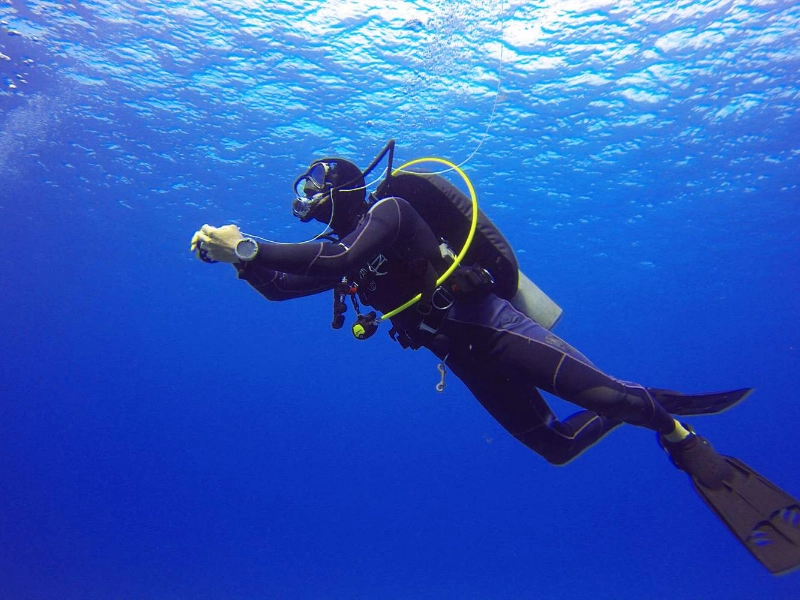Can You Descend Too Fast While Diving?
A common concern among scuba divers is their maximum descent speed. It is crucial to adhere to the 5-point SORTED descent technique as well as the rules provided by your dive organization when descending. Divers who descend too rapidly endanger not just their friends but also the surrounding waters. Squeezing the sinuses and ears too quickly can result in barotrauma.
symptoms

Reasons
 Too rapid a descent can result in "the bends" or decompression sickness. This is the result of trapped nitrogen gas from your scuba tank in your tissues and joints, which cannot be released. These nitrogen bubbles grow as you ascend, reaching arterial blood veins that provide oxygen to your brain and other essential organs. This creates a barrier and robs your body of the oxygen it requires to survive. This is a medical emergency that has to be treated in a hyperbaric chamber right away.
Furthermore, descending too quickly might crush the sinuses, ears, and mask, which can result in barotrauma. This happens when the pressures in your inner ear, sinus cavities, and ears are not equalized before you descend. This issue can be avoided by giving yourself enough time to clear these airspaces before beginning your descent.
Too rapid a descent can result in "the bends" or decompression sickness. This is the result of trapped nitrogen gas from your scuba tank in your tissues and joints, which cannot be released. These nitrogen bubbles grow as you ascend, reaching arterial blood veins that provide oxygen to your brain and other essential organs. This creates a barrier and robs your body of the oxygen it requires to survive. This is a medical emergency that has to be treated in a hyperbaric chamber right away.
Furthermore, descending too quickly might crush the sinuses, ears, and mask, which can result in barotrauma. This happens when the pressures in your inner ear, sinus cavities, and ears are not equalized before you descend. This issue can be avoided by giving yourself enough time to clear these airspaces before beginning your descent.
Handling
 Slowing down is the best course of action for scuba divers who descend too quickly. Particularly inexperienced scuba divers should descend gradually until they gain greater confidence and feel comfortable doing so. Additionally, it's critical to often check your depth and ensure that you are descending at a pace that is safe for you. If you descend too quickly, you can exceed the decompression restrictions for your dive and have to descend again to properly off-gas. An air embolism, or DCS, may result from this.
In a similar vein, climbing too quickly may cause your blood and tissues to fill with nitrogen bubbles. The bends, commonly known as decompression sickness, may result from this. To prevent these situations, it's critical to adhere to the ascent rates advised by dive computer manufacturers, hyperbaric physicians, and diving training organizations. In order to prevent colliding with other divers or their surroundings, it's also a good idea to glance down from time to time while you rise.
Slowing down is the best course of action for scuba divers who descend too quickly. Particularly inexperienced scuba divers should descend gradually until they gain greater confidence and feel comfortable doing so. Additionally, it's critical to often check your depth and ensure that you are descending at a pace that is safe for you. If you descend too quickly, you can exceed the decompression restrictions for your dive and have to descend again to properly off-gas. An air embolism, or DCS, may result from this.
In a similar vein, climbing too quickly may cause your blood and tissues to fill with nitrogen bubbles. The bends, commonly known as decompression sickness, may result from this. To prevent these situations, it's critical to adhere to the ascent rates advised by dive computer manufacturers, hyperbaric physicians, and diving training organizations. In order to prevent colliding with other divers or their surroundings, it's also a good idea to glance down from time to time while you rise.
Avoidance
 Is there a limit to how quickly a diver can descend while diving? is a question that many scuba divers have. The short answer is no, but keep in mind that a precipitous descent might cause compression arthralgia and nitrogen narcosis. Planning and controlling the dive is essential to preventing these issues. This involves ensuring that the scuba diving protocol is followed in its entirety and that all divers are at ease with the group's slowest diver's pace.
Ascending at a pace that permits the body to safely expend the nitrogen bubbles it has received throughout the dive is also crucial. By doing this, the bends—decompression sickness brought on by overly rapid ascent rates that cause nitrogen bubbles to accumulate in the tissues and bloodstream and induce arterial-gas embolism—can be avoided. Ear barotrauma is another possible outcome. Scuba instructors often emphasize the significance of adhering to a safe ascent rate for this reason, among others.
Is there a limit to how quickly a diver can descend while diving? is a question that many scuba divers have. The short answer is no, but keep in mind that a precipitous descent might cause compression arthralgia and nitrogen narcosis. Planning and controlling the dive is essential to preventing these issues. This involves ensuring that the scuba diving protocol is followed in its entirety and that all divers are at ease with the group's slowest diver's pace.
Ascending at a pace that permits the body to safely expend the nitrogen bubbles it has received throughout the dive is also crucial. By doing this, the bends—decompression sickness brought on by overly rapid ascent rates that cause nitrogen bubbles to accumulate in the tissues and bloodstream and induce arterial-gas embolism—can be avoided. Ear barotrauma is another possible outcome. Scuba instructors often emphasize the significance of adhering to a safe ascent rate for this reason, among others.







